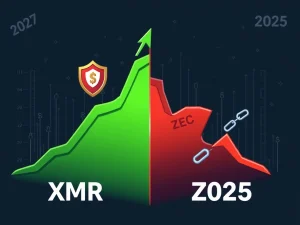Nigeria Stablecoin: Unlocking a Groundbreaking Era of Crypto Regulation

In a significant pivot, Nigeria is now embracing stablecoin ventures, signaling a dramatic shift in its stance on digital assets. After months of stringent enforcement actions, including a notable crackdown on Binance, the nation is setting the stage for a new era of cryptocurrency integration. This move is particularly exciting for anyone tracking global crypto trends, especially the evolving landscape of Nigeria stablecoin policies.
Nigeria Stablecoin: A Pivotal Policy Shift Unveiled
The announcement came from Emomotimi Agama, the director-general of Nigeria’s Securities and Exchange Commission (SEC), during the Nigeria Stablecoin Summit in Lagos. Agama’s remarks marked a clear departure from the previous restrictive environment, emphasizing a dual role for the SEC: both as a regulator and an advocate for innovation. He explicitly stated Nigeria’s readiness to welcome stablecoin businesses, provided they adhere to local guidelines. This policy reversal is a stark contrast to 2024, when the government intensified its efforts against Binance, alleging its involvement in exacerbating naira devaluation through illicit forex trading and money laundering. At that time, the naira had plummeted by nearly 70%.
This strategic shift reflects Nigeria’s broader ambition to integrate digital assets into its mainstream financial system. It’s not just about stablecoins; it’s about building a robust, compliant digital economy.
Understanding the New Nigerian Crypto Regulation Landscape
Agama highlighted the critical need for regulatory frameworks specifically tailored to Africa’s unique market realities, famously stating, “Africa needs African solutions.” The foundation for this new approach is the recently enacted Investment and Securities Act (ISA 2025). This legislation provides the legal backbone for stablecoin oversight and broader digital asset innovation. Under ISA 2025, the SEC has already begun integrating stablecoin projects into its regulatory sandbox, a crucial step for fostering controlled innovation. This proactive approach to Nigerian crypto regulation aims to balance financial stability with technological advancement.
Key aspects of the new regulatory framework include:
- Legal Foundation: The ISA 2025 provides clear guidelines for digital asset operations.
- Regulatory Sandbox: A controlled environment for testing new stablecoin projects, ensuring compliance before full market rollout.
- Taxation Plans: The government plans to tax digital asset transactions, aiming to generate revenue from this burgeoning sector.
Why is Stablecoin Adoption Crucial in Nigeria?
The growing demand for stablecoins among Nigeria’s tech-savvy population is a significant driver behind this policy shift. Nigerians have increasingly turned to dollar-backed tokens as a hedge against persistent inflation and the rapid depreciation of the local currency, the naira. Stablecoins offer a reliable store of value and a more stable medium for transactions in an unpredictable economic climate. Agama acknowledged this trend, pointing to the widespread adoption of stablecoins for remittances, savings, and even daily transactions.
The Central Bank of Nigeria has already given its nod to the cNGN, a naira-pegged stablecoin developed by the Africa Stablecoin Consortium. This approval serves as an early indicator of institutional support for stablecoin adoption within the country, showcasing a willingness to integrate regulated digital currencies into the national financial ecosystem.
Here’s a quick look at why stablecoins are gaining traction:
- Inflation Hedge: Protects savings from currency devaluation.
- Remittances: Offers faster and cheaper cross-border money transfers.
- Financial Inclusion: Provides access to stable financial instruments for the unbanked or underbanked.
The Vision for Digital Assets Nigeria and Beyond
Agama’s vision extends beyond domestic stablecoin use. He outlined an ambitious plan for a Nigerian stablecoin to facilitate cross-border trade across Africa within the next five years. This initiative aims to position Nigeria as a leader in blockchain-powered finance on the continent, fostering greater economic integration and efficiency across African markets. The focus on ‘African solutions’ underscores a desire to develop frameworks that genuinely address the continent’s unique economic and social needs, rather than simply adopting Western models.
By fostering compliance-driven innovation, Nigeria seeks to create a vibrant and secure environment for digital assets Nigeria, attracting both local and international investors. This forward-thinking approach could set a precedent for other African nations looking to harness the power of blockchain technology.
What Does This Mean for Africa Stablecoin Development?
Nigeria’s regulatory shift has significant implications for the broader Africa stablecoin ecosystem. Nathaniel Luz, president of the Africa Stablecoin Network, lauded the government’s “friendly regulation,” calling the summit a historic milestone for Africa’s digital asset landscape. This positive reception from industry leaders suggests that Nigeria’s approach could inspire similar policy changes across the continent, fostering a more unified and robust digital economy.
The move also includes plans to tax digital asset transactions, aiming to capture revenue from a sector that has thrived despite prior restrictions. This pragmatic approach contrasts with earlier enforcement actions, which often disrupted market activity without addressing the underlying demand for stablecoins. By embracing regulation, Nigeria aims to ensure market stability while also benefiting from the economic activity generated by digital assets.
As Agama succinctly put it, “My message today is clear: Nigeria is open for stablecoin business, but on terms that protect our markets and empower Nigerians.” This statement encapsulates the nation’s new strategy: fostering innovation within a regulated framework to benefit its citizens and economy.
Conclusion: A New Dawn for Crypto in Nigeria
Nigeria’s decision to open its doors to stablecoin ventures marks a transformative moment for its financial landscape and the broader African digital asset ecosystem. This strategic pivot, driven by a commitment to innovation and guided by the new Investment and Securities Act (ISA 2025), signifies a mature and pragmatic approach to digital currencies. By embracing regulation, fostering a supportive environment for Nigeria stablecoin projects, and recognizing the critical role of stablecoins in economic stability, Nigeria is not only addressing its internal financial challenges but also positioning itself as a leader in blockchain innovation on the continent. This move could well be a blueprint for other nations seeking to integrate digital assets responsibly into their economies.
Frequently Asked Questions (FAQs)
Q1: What prompted Nigeria’s shift towards stablecoin acceptance?
A1: The shift was primarily driven by the recognition of stablecoins’ growing use by Nigerians as a hedge against inflation and currency depreciation, coupled with the government’s realization that outright bans were ineffective. The new Investment and Securities Act (ISA 2025) provides the legal framework for this change.
Q2: How does the new Nigerian crypto regulation differ from previous policies?
A2: Previously, Nigeria adopted a restrictive stance, culminating in a crackdown on exchanges like Binance. The new policy, outlined by the SEC, is one of regulated acceptance, welcoming stablecoin businesses that adhere to local guidelines and incorporating them into a regulatory sandbox, rather than outright prohibition.
Q3: What is the significance of the cNGN stablecoin’s approval?
A3: The approval of cNGN, a naira-pegged stablecoin, is a significant indicator of institutional support for digital assets. It demonstrates the Central Bank of Nigeria’s willingness to integrate regulated digital currencies, paving the way for broader stablecoin adoption within the country.
Q4: What are Nigeria’s long-term goals for digital assets?
A4: Nigeria aims to position itself as a leader in blockchain-powered finance in Africa. A key long-term goal, as articulated by SEC DG Emomotimi Agama, is to facilitate cross-border trade across Africa using a Nigerian stablecoin within the next five years, promoting economic integration and efficiency.
Q5: How will the new policy impact the demand for stablecoins in Nigeria?
A5: The new policy is expected to significantly boost legitimate stablecoin adoption. By providing a clear regulatory framework and fostering a compliant environment, it will likely increase trust and accessibility, encouraging more Nigerians to use stablecoins for remittances, savings, and daily transactions as a stable alternative to the naira.










